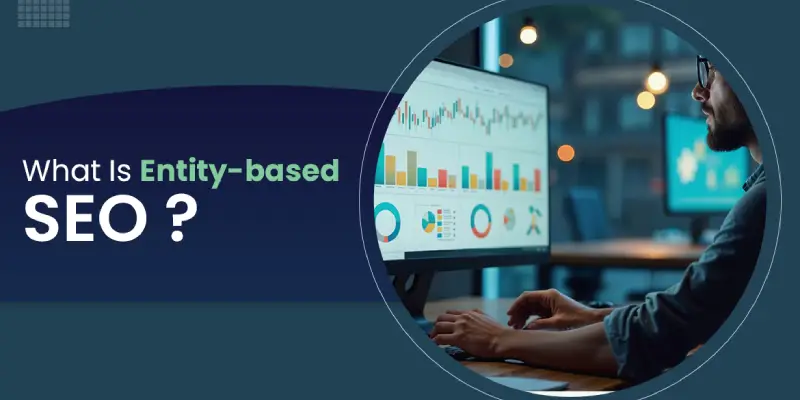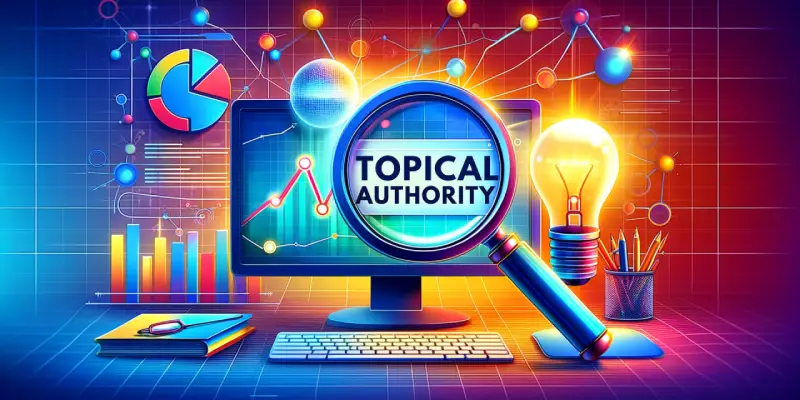SEO has changed a lot over the years. If you still rely only on keywords, you’re already behind. Google no longer focuses only on words. It wants to understand the meaning behind them. And that’s where Entity Based SEO becomes important.
In today’s SEO world, Google wants to know what your content is really about. It’s all about connecting ideas, building trust, and becoming a reliable source for specific topics.
Table of Contents
ToggleWhether you’re running a blog about desi cooking or writing mobile reviews in Pakistan, building topical authority with Entity Based SEO can help you grow fast.
There we explain everything in simple language. No complicated words. Just clear strategies, easy to use tools, and real examples especially helpful for bloggers and small businesses in Pakistan.
If you’re serious about results, consider working with a Trusted SEO Firm that understands how to make Entity Based SEO work for you.
What is Entity Based SEO?

Old SEO vs. New SEO
Old SEO was easy: choose a keyword, repeat it a few times, and wait for traffic. But now, Google is smarter. It knows when someone is trying to trick it.
Entity Based SEO is different. It doesn’t only care about words it cares about meaning. Google tries to understand your content like a real person would.
What is an Entity?
An entity is anything that exists and has a clear meaning. It could be:
-
A person (e.g., “Imran Khan”)
-
A brand (e.g., “Shan Masala”)
-
A place (e.g., “Karachi”)
-
A concept (e.g., “mental health”)
So when you write “Biryani,” Google knows it’s a South Asian dish. It connects it with images, recipes, culture, restaurants, and more. This is thanks to Google’s Knowledge Graph, which connects different ideas like a big network the foundation of Entity Based SEO.
If you’re not sure how to use this in your content, an experienced Entity-Based SEO expert can help you structure your site for better rankings and deeper topical authority.
Why Topical Authority is Better Than Just Keywords

Google Focuses on Expertise and Context
Topical authority means Google trusts you. It sees that you understand your topic well and have written about it in detail. With Entity Based SEO, this becomes easier and more powerful.
This is part of E-E-A-T:
- Experience
- Expertise
- Authority
- Trust
If you write 10 strong posts about “Pakistani brands,” and connect them using Entity Based SEO, Google may see you as a go to source.
Keyword Stuffing Doesn’t Work
In the past, you could repeat “best tea in Lahore” 10 times and rank. Now, that doesn’t work. It looks fake.
Google now prefers:
- Clear structure
- Natural writing
- Topics that answer real questions
If your blog explains everything about “Pakistani teas” like kahwa, doodh patti, and Kashmiri chai and you structure it with Entity Based SEO, you’re giving Google what it wants.
How Entities Help Build Authority
Google Understands Better When You Use Entities
Mentioning related terms and linking your content helps Google understand how everything is connected. This is the heart of Entity Based SEO.
If you’re writing about “Pakistani fashion,” and you also mention “shalwar kameez,” “Eid collections,” “Gul Ahmed,” and “Lawn 2025,” you’re building a strong web of meaning.
You Can Show Up in Featured Snippets
When you add structured data (like schema), your post can show up in:
- People Also Ask
- FAQs
- Recipe cards
This is another benefit of Entity Based SEO more visibility, even if you’re not #1.
Step by Step Guide to Build Topical Authority
Step 1: Choose a Focused Niche
Don’t try to cover everything. Focus on one topic. For example:
- Instead of “food blog,” choose “Pakistani street food.”
- Instead of “fitness,” choose “home workouts for Pakistani women.”
This makes it easier to apply Entity Based SEO.
Step 2: Find Key Entities in Your Topic
Look for:
- Brands
- Products
- Locations
- Ideas
Free tools
- Google Search (People Also Ask)
- Wikipedia
- Google Trends
Paid tools
- AlsoAsked
- SEMrush
- Frase
Entity Based SEO means identifying and covering these entities clearly.
Step 3: Make Content Clusters
Write one main post (pillar) and several smaller ones linked to it. This is a solid Entity Based SEO technique.
Example
Main Post
“Pakistani Street Food Guide”
Linked Posts
- Best Bun Kabab in Karachi
- Gol Gappay Recipes
- History of Chana Chaat
This shows Google that you’ve covered the topic well using Entity Based SEO structure.
Step 4: Use Structured Data
Schema helps Google understand your content better.
- Use tools like Schema.org or plugins like Rank Math or Yoast.
Useful types
- Article
- Person
- Recipe
- Product
- LocalBusiness
Structured data is an essential part of Entity Based SEO.
Step 5: Link Your Content
Internal links help Google and readers. They:
- Make it easier for Google to find your pages
- Show how your topics connect
- Keep users on your site longer
Use clear links like: “Check our Gol Gappay recipe here.”
All of this strengthens your Entity Based SEO.
Step 6: Keep Improving Your Posts
Don’t write once and forget.
- Update with new facts or trends
- Add FAQs, images, or videos
Example
Update your post on “Green Tea” with benefits and side effects. This builds Entity Based SEO over time.
Step 7: Get Noticed on Other Websites
Google also looks at where else your name or brand appears.
Build this by
- Writing guest posts
- Getting featured on news sites (like Dawn, Tribune)
- Listing your business online
- Make sure your brand name and profile stay consistent everywhere
These steps support your overall Entity Based SEO strategy.
Real Examples of Entity SEO in Action
Example
Food Blogger from Lahore
One blog focused on “Anday Wala Burger,” “Niswar benefits,” and “Chai Dhabas.” They used schema, internal linking, and smart entity usage. Their Entity Based SEO efforts grew their traffic 3 times in 6 months.
Example
Tech Blog with No Backlinks
It focused on Android tips for users in Pakistan. Wrote detailed posts for each app. Without any backlinks, their posts showed up in “People Also Ask.” Thanks to strong Entity Based SEO.
Tools That Can Help You
| Tool | Type | Use |
|---|---|---|
| Google Search Console | Free | Check traffic and search data |
| InLinks | Paid | Find and manage entities |
| Frase | Paid | Content planning |
| Google Trends | Free | See popular topics |
| Schema Markup Generator | Free | Create schema tags |
All these tools can boost your Entity Based SEO efforts.
Mistakes to Avoid
Mistake 1: Writing Unrelated Posts
Don’t post random topics. Focus on connected content. It’s essential for Entity Based SEO.
Mistake 2: Ignoring Meta Tags and Schema
Headings, descriptions, and schema help Google understand your content all part of Entity Based SEO.
Mistake 3: Not Linking Posts
Without links, your content looks scattered. Internal linking supports Entity Based SEO and user experience.
How Long Before You See Results?

SEO takes time. On average, it may take:
- New blogs: 3 to 6 months
- Medium blogs: 1 to 3 months with regular content
With consistent Entity Based SEO, results will come.
Is This Useful for Pakistani Bloggers?
Definitely.
Entity Based SEO is great for small websites in Pakistan. Why?
- Less competition in local topics
- You can create highly relevant content
Example
A blog in Karachi about “home tuitions,” “exam tips,” and “matric past papers” can rank well with content clusters and Entity Based SEO.
Conclusion
SEO is no longer about shortcuts. It’s about writing helpful content. Google prefers:
- Clear topics
- Related ideas
- Trusted sources
By focusing on entities and using Entity Based SEO, you help both Google and your readers.
Start small. Be consistent. Use Entity Based SEO smartly, and success will follow.
FAQs
What’s the difference between a keyword and an entity?
A keyword is a search phrase. An entity is something real, like a place, person, or concept. Entity-Based SEO uses this difference to your advantage.
Should I use schema on every post?
Only if it makes sense. It’s very useful for recipes, reviews, and FAQs, and helps with Entity-Based SEO.
Can small blogs also benefit?
Yes! If your content is detailed and well organized, Entity-Based SEO helps you compete with bigger blogs.
Any free tool for finding entities?
Use Google’s People Also Ask, Wikipedia, and Google Trends. Great for Entity-Based SEO research.
Is Entity-Based SEO still useful in 2025?
Yes, even more now. Google is focusing more and more on meaning and understanding which is exactly what Entity-Based SEO is all about.
